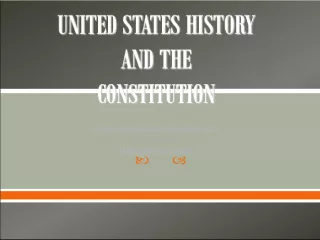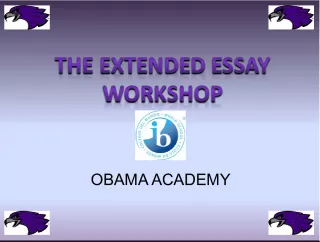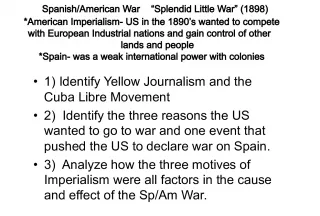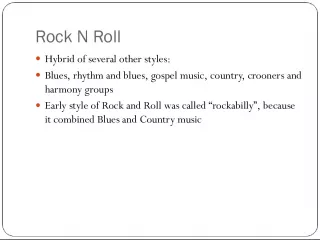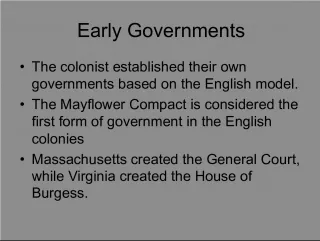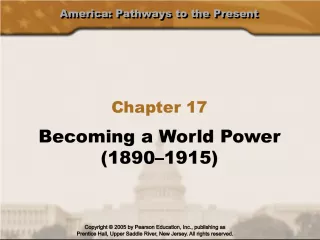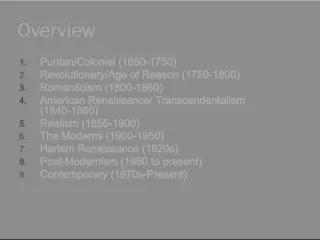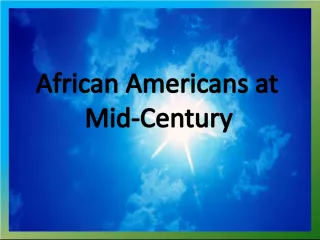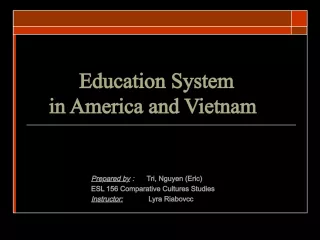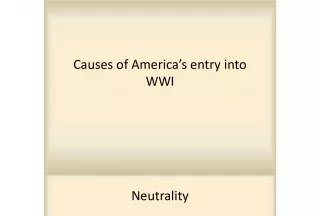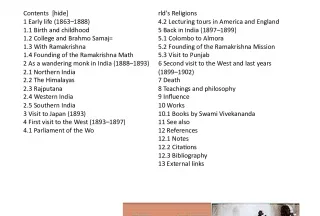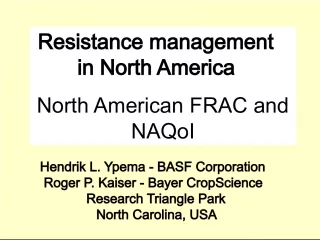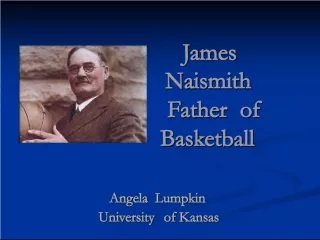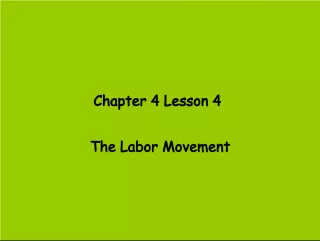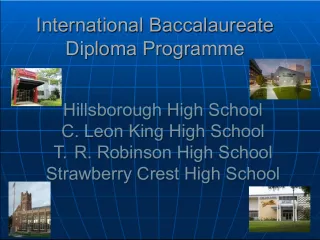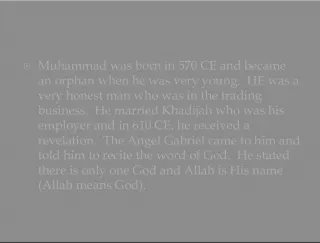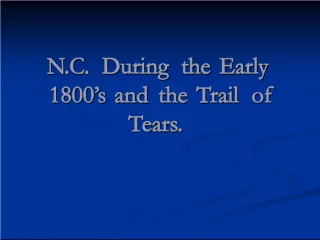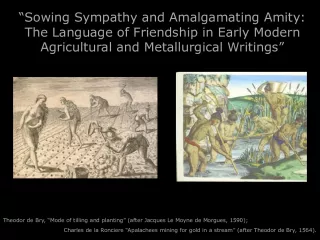Three Worlds Meet and Early America: An Overview
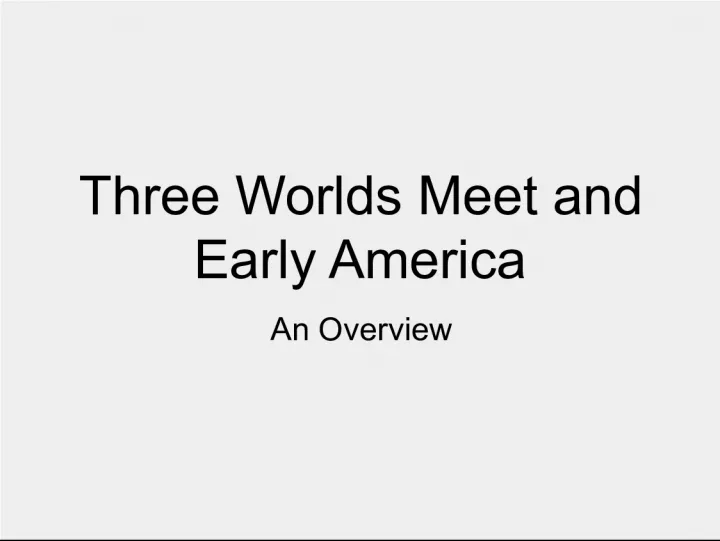

This article provides an overview of the three worlds that came together in early America: Native American, African, and European. It covers the history of the first Americans who crossed a land
- Uploaded on | 3 Views
-
 bader
bader
About Three Worlds Meet and Early America: An Overview
PowerPoint presentation about 'Three Worlds Meet and Early America: An Overview'. This presentation describes the topic on This article provides an overview of the three worlds that came together in early America: Native American, African, and European. It covers the history of the first Americans who crossed a land. The key topics included in this slideshow are . Download this presentation absolutely free.
Presentation Transcript
Slide1Three Worlds Meet andEarly America An Overview
Slide2When:Where: What: 1492 (and beyond) North, Central and South America A mixing of peoples and cultures (Native American, African and European)
Slide3Native AmericansThe first Americans crossed a land bridge connecting Asia and Alaska (known as the Bering Strait) as many as 40,000 years ago.
Slide4Native American Society Around 1492At the time of Columbus’ arrival, there were hundreds of different native groups living in all areas of North, Central and South America.
Slide5West African Society Around 1492Long established trade routes brought both goods and Islam into the areas of West Africa
Slide6In 1492…Christopher Columbus, and his crews on the Nina, the Pinta and the Santa Maria, landed on the island we now know as San Salvador (“Our Savior”). He was sponsored by the Spanish government. Did Columbus “discover” America? No. Native Americans had lived here for thousands of years and Vikings are believed to have landed in North America before the year 1000.
Slide7Why did Columbus come?1. Gold 2. Land 3. To Spread Christianity What we’re told in school…He was looking for a shorter trade route to Asia. This is true, but… What Spain was really after was: We call this Imperialism (empire building; to gain land and resources outside of your country)
Slide8Columbus’ Impact on the AmericasColumbus colonized the Americas, claiming the land for Spain and establishing sugar plantations. Though the natives fought Columbus’ advances, eventually the advanced weaponry of the Spanish was too much for the natives. The Spanish enslaved the natives to work in the sugar plantations in the Caribbean islands.
Slide9The biggest impact the arrival of Europeanshad on the Americas was… DISEASE! European diseases (small pox, measles, mumps chickenpox) did not exist in the Americas until Europeans arrived. Native Americans did not have immune systems that could fight the diseases. Disease killed more Native Americans than any army. Some estimates say up to as much as 90% of all people living in the Americas before Columbus arrived. In 1502, due to a labor shortage caused by disease, the Spanish began the Atlantic Slave Trade , bringing slaves from Africa to work on the sugar plantations in the islands.
Slide11The Columbian Exchange – what else was shared
Slide12The year is now1607… England settles its first colony in the Americas – Jamestown – along the Virginia coast.
Slide13The Jamestown settlers had 2 goals:1. To find gold 2. To get rich trading with the Indians The settlers did not want to prepare for winter by planting crops or building sturdy housing
Slide14Many settlers died of disease and starvation.During the winter of 1609, known as “starving time”, settlers ate shoe leather to stay alive. Jamestown might not have survived if it were not for tobacco or “ BROWN GOLD”
Slide15in order to grown all that tobacco, the colonists needed labor. A practiceknown as indentured servitude was developed to meet the need. The Indenture Contract in 17th Century Virginia
Slide16The Massachusetts Bay ColonyFounded by the Puritans – a religious group who felt the Church of England retained too many Catholic traditions and needed to be purified. Puritans came to the colonies to be free to practice the religion they wanted to practice.
Slide17What did Puritans believe?They placed great importance in the Bible and interpreted it literally. They believed the people of the church should have the power to hire or fire the minister. “City Upon A Hill” - They believed God wanted them to be a model society for others to follow. Believed it was already determined who was going to heaven – but you had to work hard and be pious while on earth to “keep” your spot.
Slide18Thirteen Original Colonies Mid-1700sNew England Middle Colonies Southern Colonies • shipping • ship building • fishing • lumber • livestock • trade • furs • wheat • glass • trade • paper • ship building • tobacco • wheat • rice • indigo • naval supplies Economic Activities

